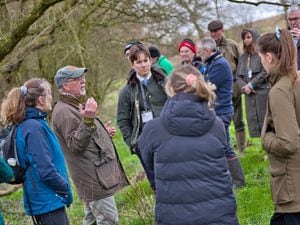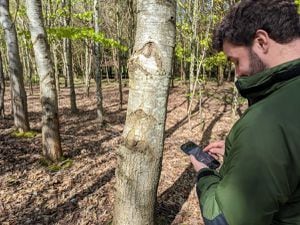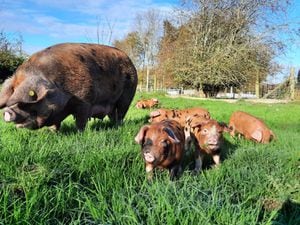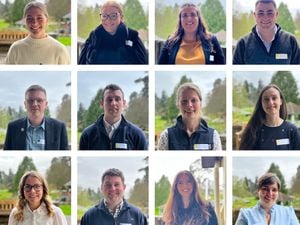Chance to shape the future for next generation
Alex Jones, 25, farms with his father at Preston Hill Farm, in Penkridge, Staffordshire. They run 250 beef cattle, 1600 store lambs through the winter and 100 hectares (250 acres) of combinable crops including rapeseed wheat and barley. The farm runs a 250-head beef cattle herd mainly continental breeds with some native breeds. The farm also runs 1600 store lambs from late September through to April.
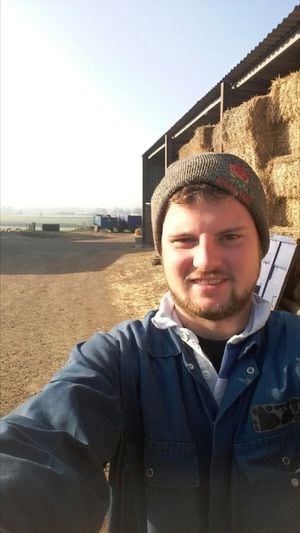
Alex's degree in Agri Food Marketing with Business Studies at Harper Adams gave him a platform to undertake different roles from farm to fork and he particularly enjoyed his placement year at farming business Emmett UK where he worked in production units harvesting kale, leeks and spinach to supply Tesco and Waitrose.
"To be involved in a process from farm to the customer was particularly interesting," said Alex.
"The kale crop was planted sequentially from April through until August to allow for repeat harvests of crops to take place from June through until March.
"High quality seed is passed onto local growers who produce the plants in commercial scale glasshouses. Once strong enough the plant is planted using a team of people and a semi-automated planter which puts the crop into the ground in rows. The kale plants take 12 weeks growing time with teams continually weeding the crop to provide best growing conditions possible.
"The plant is harvested by hand by a team which allows for immediate quality control to discard leaves not up to scratch but also allows for a second or at times a third harvest of the plant. The kale is then fed into a mobile factory or rig via a conveyer belt which is again checked for quality against customer specifications. The harvested product is then transported back to the factory for cutting, washing and packaging. The aim is for kale to be harvested, packed and despatched within 24 hours so that customers receive the freshest possible product."
After graduating from Harper Adams in 2014 Alex travelled to Australia to experience bigger farms and was based on a sheep station in Victoria, just 60km outside Melbourne.
"The farm compromised of 2500ha of combinable crops including oil seed rape, barley and wheat and 20,000 merino sheep. The farm had faced bush fires prior to my arrival and the majority of the flock were culled at the time.
"The new flock had come in from Western Australia and was to be classified on body condition score and wool. Sheep were then sheared, lasting approximately four weeks, and treated for flies thereafter."
Following on from this stint down under, the family farm started to call him home and he is now back in Staffordshire taking more of an active role in expanding and growing the farming business as well as looking for new opportunities to diversify.
He is excited for the future and the next generation of agriculture as recent events and Brexit negotiations take place.
"Brexit negotiations have already had a profound effect on agriculture, with the pound which has weakened, leading to expensive imports and competitive exports," he said.
"I believe there is a chance to shape our own future in terms of trade deals with 50 plus present trade deals and more new agreements to be made, future labour force from around the world, and further advancements in agricultural technologies and allowing a distinct competitive edge to ensure we maintain our high food standards of the future.
"It is our future and as the next generation we have the opportunity to shape it," he added.

